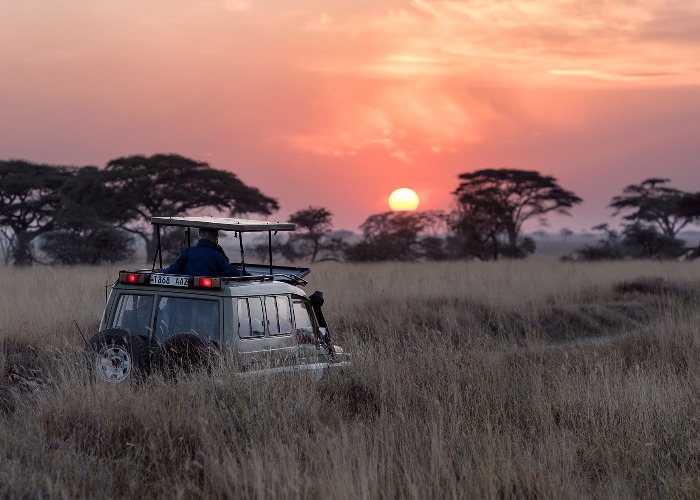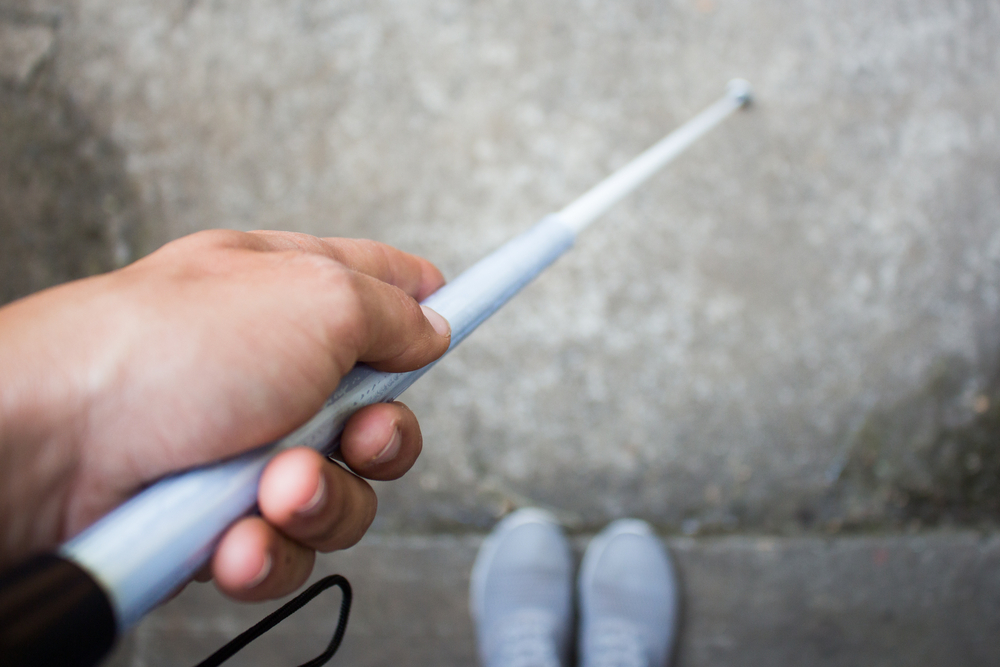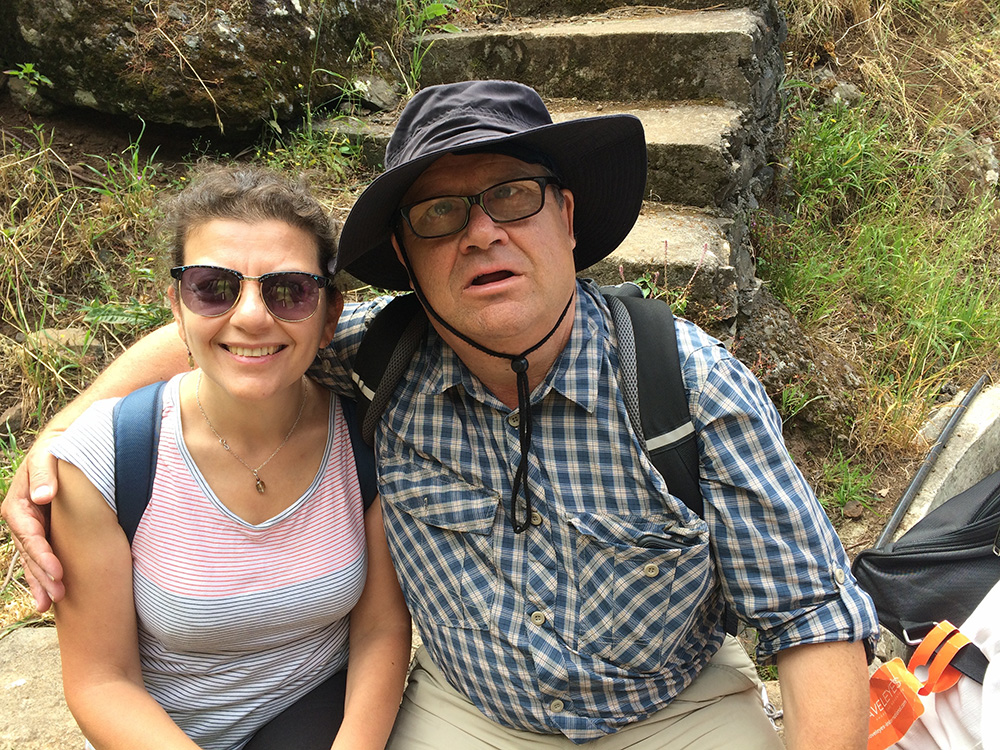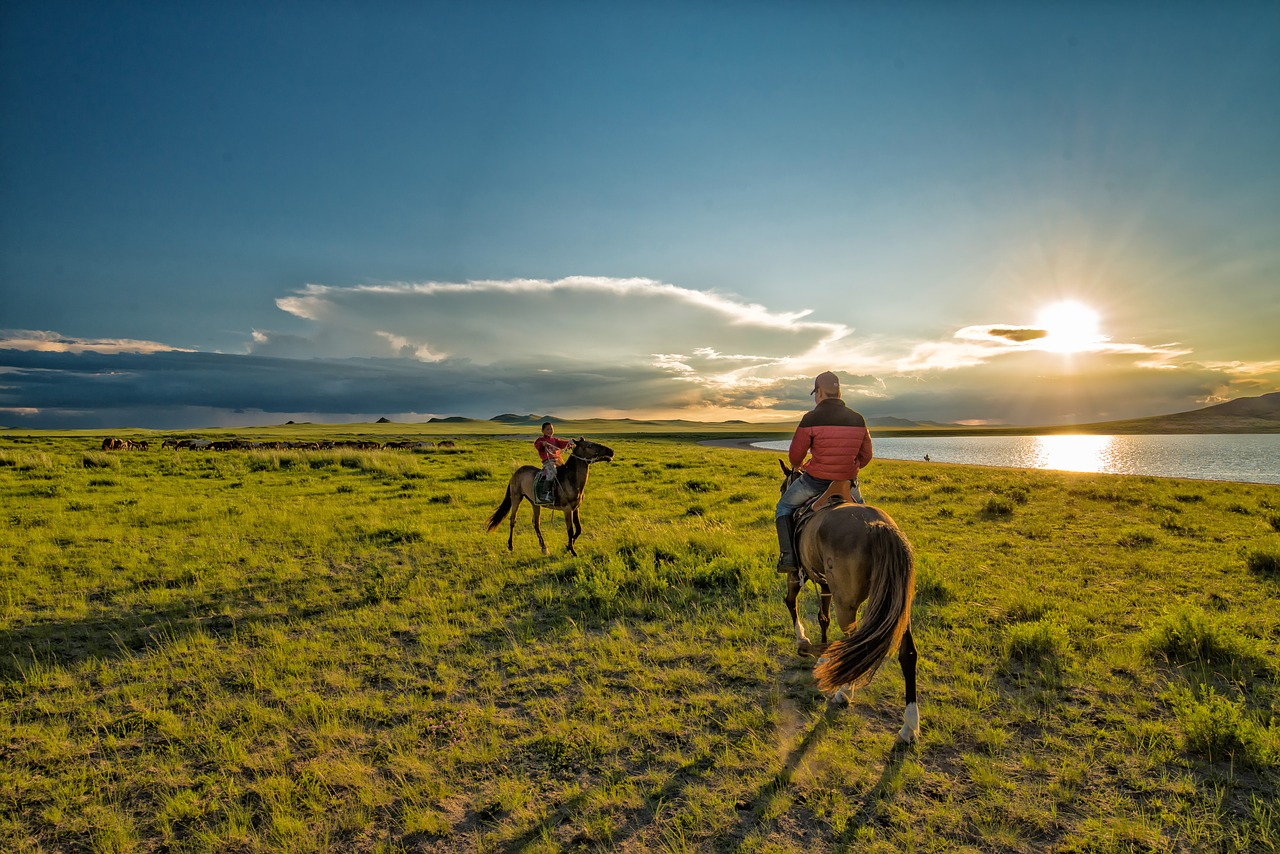How to get your dream holiday for half the price

If your travel plans are bigger than your budget, then a holiday with this tour operator could be the answer...
Traveleyes is a tour operator with a difference, giving you the chance to see the world with fresh eyes when you act as a guide for visually impaired people, and offering you heavily discounted travel in return.
How does it work?
Traveleyes specialises in holidays for visually impaired people (VIPs) who want to experience this beautiful world of ours to the full. But to do that, they need the help of sighted guides who can ‘share’ their vision with them.
Founder Amar Latif, who lost 95% of his sight by the age of 18, explains: "When I became blind, I had two choices: either I had to find a way of living the life I had planned – a life that involved adventures and travel – or I could resign myself to a hugely curtailed existence, which clearly wasn’t an option. I looked for a tour operator that provided what I wanted, and when I couldn’t find anything that fit the bill, I set up Traveleyes."
 Tracy Spohn/Shutterstock
Tracy Spohn/Shutterstock
It’s an ingenious, win-win concept: VIPs are paired with sighted guides who travel for up to 50% less. Travellers change partner each day, so it’s immensely social, and everyone gains from the experience.
I'm interested. But is it difficult being a guide?
Not at all. Guides are there as sighted companions, not carers, and to be good at that, you need nothing more than common sense, common courtesy and a liking for people.
You’ll be given some essential tips on how to accompany a VIP, such as how to walk with them – either arm in arm, or just in front so your partner can place a hand on your shoulder or back pack – and told of the types of hazards you need to warn your partner of – low branches, uneven footpaths, kerbs, lamp posts, bins and the like.
Aside from that, being open and chatty will stand you in good stead and will make the day more enjoyable, both for you and your partner. Though one of your primary purposes is to describe what you see so that your VIP can visualise it, some people, particularly those who have been blind since birth, might prefer a natter instead. Put yourself in their shoes: if you’ve no concept of colour, or have never seen or been able to touch something, you won’t be able to picture it, so meaningless descriptions will only bore. Instead find something else to talk about or guide them towards things they can touch, smell or hear.
All itineraries are specially designed to stimulate the senses, so expect visits to food and flower markets, to music venues and wine tastings, to scented gardens and salt-sprayed cliffs.
What's it actually like on the road?
My trip to Madeira included hurdling down Funchal’s steep, hair-pin bends in a toboggan (really a wicker basket on sleighs), while my VIP companion, Bob, yelled for more speed. There were loads of belly laughs in bars drinking the local hooch, poncha, and a spectacular trek along narrow, broken paths to the top of the island’s highest mountain – Pico Ruivo.
The views from the there, way above the clouds, were magnificent, with hulking volcanic masses set against a vast expanse of intensely blue sky, but what made this one of the most rewarding and memorable and joyful experiences of my life was my VIP partner David’s delight at our achievement: “You made it possible for me to do this. Thank you.”

Beyond that, my trip also gave me an opportunity to connect with my senses by showing me how much I rely on my sight alone for information, and how much I do on autopilot – I so often hear without listening, eat without savouring, touch without feeling.
Stepping back and watching my visually impaired partners process their new experiences was revelatory. “I concentrate more on what’s going on around me since I lost my sight to diabetes,” Traveleyes customer Sue told me. “Vision is like a motorway: it gets the information to your brain really fast, and so you ignore the B roads, which are all your other senses. If the motorway closes, then you have to have to use other routes to access the world.”
Where can I go and what can I do?
How long have you got? With more than 60 destinations worldwide, including Oman, Costa Rica, Bhutan, Mongolia, Uzbekistan and, closer to home, Bristol, Liverpool and the French Alps, you’ll be able to work your way through your bucket-list, no problem.
Equally wide-ranging are the activities on offer – anything from rafting and cycling to walking and skiing. There are jam-packed city breaks and relaxing sun, sea and sand holidays too.

I’m young and fit, will I find the pace too slow?
Traveleyes holidays are graded so you can pick the intensity that suits you. Destinations are chosen purely because they are great places to visit, says Latif, not because half the guests are visually challenged. “We have an office full of people who love to travel. When we choose new destinations, we don’t go for locations we think would be easy to take our mixed groups to, but places we know our guests will love and be excited by. We then work really hard to find the right sensory and accessible excursions at those destinations to make the trip enjoyable for all our travellers.”
How long are the trips?
Currently, anything from three days in Liverpool to 13 in the Philippines.
How much does it cost?
Prices for VIPs range from £349 for the three-day Liverpool trip to £3,499 for 12 days in India and Bhutan. For sighted guides, the respective prices are £249 and £2,299 – a very healthy discount.
Read more travel tips:
10 budget travel tips to make your money go twice as far >
Comments
Be the first to comment
Do you want to comment on this article? You need to be signed in for this feature
